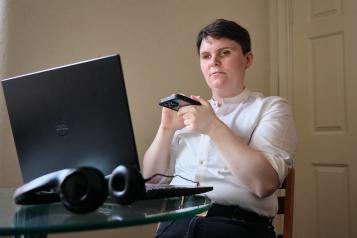Six ways we can improve services for people with autism
For most people, going to the doctor or dentist is a routine experience. However, if you have autism, accessing health and care support can be a difficult and stressful experience. New environments and sensory changes (for example, bright lights or loud noises) can be challenging and cause anxiety. It’s important that professionals are aware of autistic people’s needs and able to make the experience as easy as possible.
In the last year, several local Healthwatch have spoken to people with autism, their families and carers about their experiences of health and care services. Here are some of the key issues they raised.
Key issues for people with autism
-
There’s a lack of awareness and understanding of autism among some health and care professionals.
People have told Healthwatch that they find some health professionals, particularly GPs, have a lack of understanding about autism and knowledge about appropriate services to refer them to. Services can help by ensuring their staff are trained to meet the needs of people with autism.
We need practices to be more learning disability friendly. GPs need time and skills to implement this. They need to listen to carers and their family members, treating them as equals.
-
Health and care settings aren’t always flexible enough to adapt to their needs.
For someone with autism, issues such as noisy waiting areas and not being able to see the same GP or social worker can make a stressful experience even more difficult. Parents who have an autistic child have also told us that GP appointments are often not long enough to meet the needs of people with communication difficulties.
Health and care settings should provide more flexibility to adapt to autistic people’s needs.
He is expected to do so much like making phone calls and dealing with everything which he finds really difficult and he struggles with communication and sometimes on the phone can’t speak at all. Staff are dismissive and unhelpful about this and don’t understand. It’s heart-breaking and they are asking him to do the impossible, but don’t understand.
-
Waiting times for diagnosis can be long.
As the demand for assessment services increases, people have told us they can experience long delays in being diagnosed. These long waits put extra pressure on parents and carers. Delays in diagnosis mean longer waits for treatment and support, especially at school for children.
4. Many people with autism aren’t receiving the support they need.
People have told us they often aren’t getting support while waiting for an assessment, adding to the pressure on parents and carers and causing unnecessary stress to people with autism.
In some areas, there’s also a lack of support services for people living with autism, including getting an education and health and care plan, and employment and independent living support.
One parent of a child with autism told Healthwatch Bristol they had been waiting for social care support for three years.
5. People need more comprehensive and accessible information on the services available.
People don’t always know what autism services are available and they’ve told us the lack of information can be a barrier to accessing the support they need.
Parents and carers would also like more information and training about autism and their role as a carer, so they can better meet the needs of the person they are caring for.
6. There is a gap in mental health support for children and young people with autism.
Accessing children and young people’s mental health services can be an issue for people with autism.
In some cases, young people have been refused support from mental health services, as they say they cannot meet the needs of patients with autism. This often means services aren’t tailored to people’s specific needs, and they either receive no treatment, or the support they do get isn’t effective.


